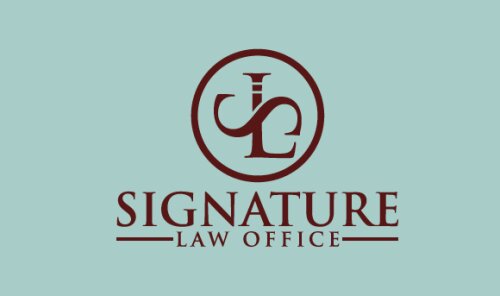Best Domestic Violence Lawyers in Canada
Share your needs with us, get contacted by law firms.
Free. Takes 2 min.
Free Guide to Hiring a Family Lawyer
Or refine your search by selecting a city:
List of the best lawyers in Canada
About Domestic Violence Law in Canada
Domestic violence in Canada is a serious issue that affects individuals and families. The law recognizes domestic violence as any form of violence or abuse that occurs within the family or between intimate partners. Canadian law encompasses both physical and psychological abuse and is aimed at protecting victims and holding perpetrators accountable. The Criminal Code of Canada addresses domestic violence through various offenses like assault, sexual assault, threats, and harassment. Provinces and territories may have additional legislation and resources to support victims and prevent further abuse.
Why You May Need a Lawyer
Legal assistance is crucial in domestic violence cases for several reasons. If you are a victim seeking protection, a lawyer can help you obtain orders such as restraining orders or peace bonds that can legally enforce your safety. For individuals accused of domestic violence, a lawyer is vital for understanding legal rights and building a defense. Additionally, custody or divorce proceedings can become complex when domestic violence is involved, necessitating specialized legal guidance to ensure fair outcomes for all parties involved, particularly children.
Local Laws Overview
Domestic violence laws in Canada vary by province and territory, but generally focus on protecting victims and ensuring perpetrators are held accountable. Key elements often include emergency protection orders, which are short-term orders granted to ensure immediate safety. Many regions offer victim assistance plans, such as counseling services and shelter access. Some provinces have specialized family violence units within law enforcement agencies to handle these cases with appropriate sensitivity and expertise.
Frequently Asked Questions
What constitutes domestic violence under Canadian law?
Domestic violence includes physical, emotional, psychological, sexual, or financial abuse between intimate partners or family members.
How can I obtain a restraining order in Canada?
You can request a restraining order through family courts if you feel your safety is threatened. A lawyer can guide you through the application process and represent you in court.
What is an emergency protection order?
An emergency protection order is a short-term court order intended to ensure immediate safety in situations of domestic violence. It may restrict an abuser from contacting the victim or entering certain locations.
Are there special legal protections for children in domestic violence cases?
Yes, children are entitled to special protections, and considerations are made to ensure their welfare is a top priority in any legal proceedings involving domestic violence.
Can I press charges for domestic violence without a lawyer?
While you can press charges by reporting the incident to the police, having a lawyer is beneficial for navigating the legal system and understanding your rights and responsibilities.
What is a peace bond?
A peace bond is a court order that prevents a person from engaging in certain activities like contacting or coming near the victim, usually for up to one year.
Where can I find support if I am a victim of domestic violence?
Numerous organizations offer support, including shelters, helplines, and counseling services. Each province usually has a dedicated helpline for immediate assistance.
How does domestic violence affect divorce proceedings?
Domestic violence can significantly impact divorce proceedings, especially in terms of custody arrangements and property division. A lawyer can help address these implications in court.
Are there specific court procedures for domestic violence cases?
Cases of domestic violence often follow specific court protocols to ensure the safety and confidentiality of the victim, including closed hearings or video testimonies.
What are the penalties for committing domestic violence in Canada?
Penalties vary depending on the severity of the offense but can include fines, probation, or imprisonment. The justice system aims to deter offenders and provide rehabilitation opportunities.
Additional Resources
Several resources are available to individuals seeking assistance with domestic violence issues. Key organizations include the Canadian Women's Foundation, National Domestic Violence Helpline, and local women's shelters. Governmental bodies such as the Ministry of Justice and provincial Legal Aid offices can provide legal support and information.
Next Steps
If you require legal assistance in domestic violence matters, start by contacting a local attorney who specializes in family law or domestic violence cases. You can also reach out to Legal Aid in your province for help if cost is a barrier. Prepare all relevant documents, such as evidence of abuse, to present your case effectively. Know that support is available, and legal professionals can guide you through each step of the process to ensure your safety and access to justice.
Lawzana helps you find the best lawyers and law firms in Canada through a curated and pre-screened list of qualified legal professionals. Our platform offers rankings and detailed profiles of attorneys and law firms, allowing you to compare based on practice areas, including Domestic Violence, experience, and client feedback.
Each profile includes a description of the firm's areas of practice, client reviews, team members and partners, year of establishment, spoken languages, office locations, contact information, social media presence, and any published articles or resources. Most firms on our platform speak English and are experienced in both local and international legal matters.
Get a quote from top-rated law firms in Canada — quickly, securely, and without unnecessary hassle.
Disclaimer:
The information provided on this page is for general informational purposes only and does not constitute legal advice. While we strive to ensure the accuracy and relevance of the content, legal information may change over time, and interpretations of the law can vary. You should always consult with a qualified legal professional for advice specific to your situation.
We disclaim all liability for actions taken or not taken based on the content of this page. If you believe any information is incorrect or outdated, please contact us, and we will review and update it where appropriate.
Browse domestic violence law firms by city in Canada
Refine your search by selecting a city.















